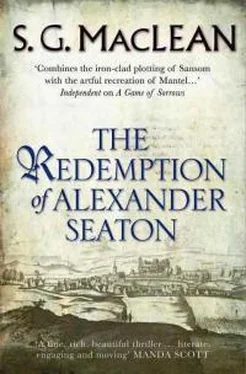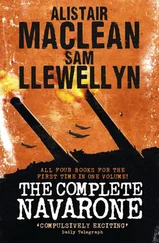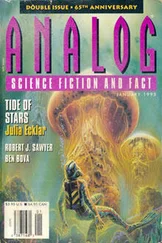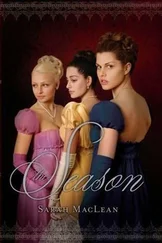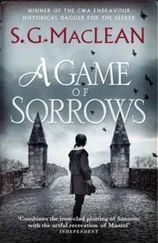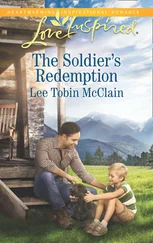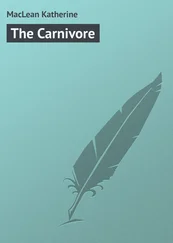‘And when the boy did return, how were things between them then?’
A light came into her eyes as she replied to the baillie. ‘It was a thing lovely to behold. They were as father and son reunited. And in truth, for myself, I could not be jealous. Walter was so happy and so proud to show off his own little ones to Patrick who, he said, would be as a brother to them. And so it was. I have seldom met such a good, loving young man, and I know from Walter, and Arbuthnott – and indeed Marion – that he was greatly gifted. I had never seen my husband at such peace. That Patrick and Marion then became attached made it all the sweeter for me. There was true happiness in our household. It was our time of true happiness.’
I had known such a time. ‘And then?’ I said.
She looked at me directly and spoke bluntly. ‘And then, it came to its end. Patrick was invited to take his dinner with Walter and with the doctor, who had just returned from Edinburgh, and who was very desirous to meet him.’ The doctor, I could guess, had not been subtle in pressing for an invitation. ‘Patrick had been that day with Marion out to Sandend, then onto Findlater and Darkwater, gathering plants as she told me. He did not go back to the apothecary’s to wash or to change his clothing when they returned, but came directly here. A change had come over him – he was not his usual, easy self, but nervy and agitated. He was most desirous of seeing Walter privately before the doctor should arrive. I asked him to rest, or to take a little refreshment while he waited, but he would have none of it, and spent the whole time in gazing intently at the portrait on the wall – the one of Walter and Helen.’
‘And did they have this private interview?’ I asked.
‘Yes,’ she said. ‘They did. I heard nothing of it – I was in the kitchens – but within half an hour of Walter arriving home, it was over – Patrick had left. Walter looked ill, shaken. He would have put off the doctor if he could have done. He would not tell me what was wrong or why Patrick had left, just that the boy had been upset, but he had managed to calm him and would speak with him the next day.’
‘And was that the last you saw of the boy?’ The baillie was watching her keenly.
She looked at her hands again and then directly at William Buchan. ‘No,’ she said, ‘it was not.’
‘He came to the house again?’
‘I think so. That is,’ she hesitated, unsure how to proceed. ‘I did not see him come, but I saw him leave.’
‘When was it?’ asked the baillie.
She shook her head and began to weep.
‘It was the night of the storm, was it not?’ I said.
She nodded and then began to weep all the more uncontrollably. ‘I had scarcely seen Walter all day. He had spent much of the morning in his business room and then the afternoon out and about in the town. He was drenched and muddy when he returned home. He said he wanted no supper, and was not to be disturbed in his work, although I heard him later go down to the kitchen where a pot of stew had been left on the hearth. I had much trouble with the children that evening – they were in such great fear of the storm. I was concerned about Walter, and sat at my needlework for as long as I could, but a little before ten, tiredness overwhelmed me and I decided to retire without having seen my husband. As I was mounting the back stairs, I saw a hooded figure come out of Walter’s work room and leave the house by the side door, directly onto Water Path. I thought it was Patrick by the height and gait of him. I was so anxious to put right whatever had gone wrong with him and Walter, I threw a cloak around my shoulders and went out without even a lantern to try to overtake him. I had not expected the tempest outside to be so bad, and I made little headway in catching him up – the streets were near enough turned to rivers. I kept him in my sights, but then he started stumbling, falling, grabbing out at walls, banks, even the grass, it seemed to try to steady himself. I knew he was not drunk, because he had walked straight enough when he had left Walter’s room and our house. I started to run, to go to his aid and then I saw …’ She stopped, and bit her lip.
‘You saw me, did you not?’
‘Yes, Mr Seaton,’ she said quietly, ‘I saw you. I thought you would have helped him, but–’
‘But I did not.’ I could feel the eyes of the baillie and the notary on me, held fast, now, and I could not look at either of them.
The baillie’s mind was working quickly. ‘And so you helped him to the schoolroom, in the hope that Mistress Youngson would hear and find him?’
‘No,’ she looked up, surprised, defensive even. ‘Had I reached him, I would have helped him home – to the apothecary’s, or to the doctor’s if I could have managed it. Even to the schoolhouse, but I would have roused someone, wherever it might have been.’
‘But you did not?’ queried the baillie.
‘No,’ her voice was flat. ‘I could not. As I watched Mr Seaton pass by, I saw two figures coming from the direction of the churchyard, and they saw me.’
‘The Dawson sisters,’ I said.
She nodded. ‘They waited until you had turned into the schoolhouse pend and then went to him. They managed to lift him between them and drag him – somehow – after the way you had gone. They were gone from sight a few minutes and I waited – I thought they must have roused you. When they came out again, one of them looked towards where I stood. She turned again as they took the other fork up the path, as if to tell me all was well, that I could go back now. And so I did.’
Her head sank into her hands and I realised that someone else, for two weeks, had been carrying something of my guilt. ‘There was little you could have done,’ I offered her. ‘You were not to know they had not alerted me. The fault is not yours.’ My words did little to comfort her, if indeed they reached her at all.
The baillie gave her a moment, but there were still many questions to be answered, and every moment wasted was a moment more for Walter Watt to make good his flight. ‘After all this,’ he began, ‘you still did not suspect your husband? Even when you heard how Patrick Davidson had died?’
She shook her head dumbly, her face puffy and blotched now. ‘I was very scared, when the news of Patrick’s death was brought to us the next morning, that his falling out with Walter might have something to do with it, in some manner or other. But then when I saw how Walter took the terrible news, how desolate it left him, I could not believe that he had had anything to do with it. And he did not want to talk to me about it; I could see that well enough.’
Yes, I remembered. Remembered how keen Walter Watt had been to shield his wife from us that morning when we had brought the dead body of Patrick Davidson on a bier to their home. I remembered how he had urged her away to the nursery early in that conference. And I remembered also how determined he had been, to begin with, to argue that I must have been with his nephew the night before. Only with the suggestions of Charles Thom as a worthy suspect for the murder had the provost lost interest in pressing my possible guilt.
‘You told him, did you not, what you had seen, and by whom you had been seen? And you told him you had seen me?’
She looked at me, somewhat confused. ‘I – yes, I did.’ Unwilling, yes, but unwitting more so, she had consigned Janet and Mary Dawson to a perpetual banishment from this town; even, for Mary, from Scotland itself, warned off by the provost’s henchman. And she would, but for the chance and ill-luck of Charles Thom, have consigned me to the hangman’s noose. I was to have been her husband’s scapegoat. But why then had he taken me into his confidence, entrusted me with the mission of the maps? I saw that my pride had set a trap for me. Once he had seen that the papers found in his nephew’s room bore no account of Patrick Davidson’s suspicions of him, the maps in themselves had mattered little to him. I had no doubt a report of my encounter with Janet Dawson as she had been beaten from the burgh bounds would have reached his ears. I had not been entrusted with some important mission on the burgh’s behalf: I had been got out of the way.
Читать дальше
